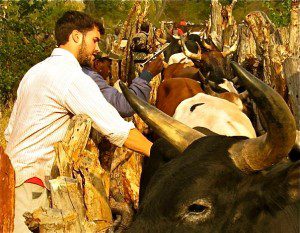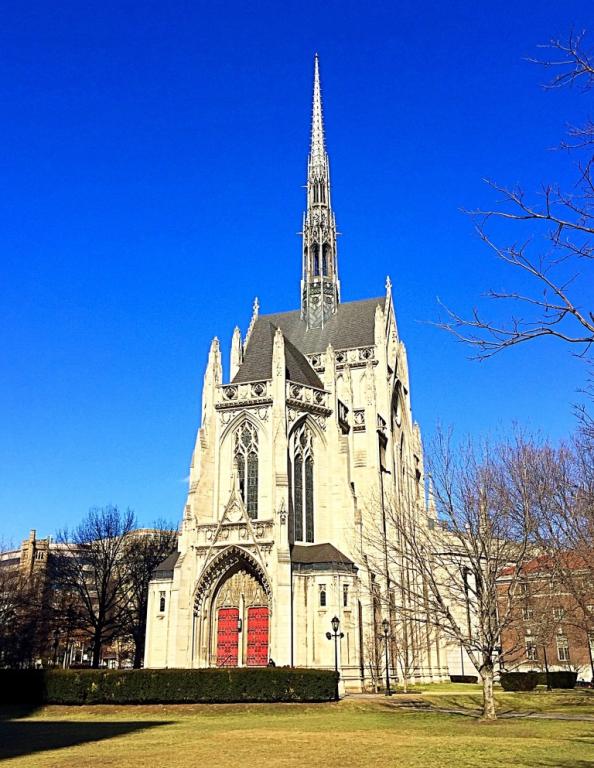 “We are not great shots across the bow of history; rather by simple grace, we are hints of hope.”
“We are not great shots across the bow of history; rather by simple grace, we are hints of hope.”
On Friday night I had the gift of sitting with a group of folk from all across America talking about my book, “Visions of Vocation.” For serious people to read the book seriously is the best of gifts; and even to have someone remind of what I had written, as with the above words, is a surprising gift.
In Columbus, OH for a few days, this was the last meeting of a year-long learning community focused on rethinking the meaning of vocation for the church in the world. From San Diego to Berkeley, from Atlanta to Denver, from Phoenix to Ithaca, and more, these are good people doing good work—and in fact, each has committed to this project because they want to understand more fully and clearly the meaning of work.
I was intrigued to hear that most of the questions over the almost hour-and-a-half were about the wounds of the world. Perhaps that is not surprising, human beings that we are. Things are just not the way they’re supposed to be, and we all feel that deeply, sometimes very painfully.
I spoke for few minutes at the beginning, after-dinner remarks as they were, and chose to reflect on a conversation with my son Elliott from a couple nights ago. We went to a late-night showing of the new film, “A Most Wanted Man,” the movie made from the novel by John le Carre. We have both read a lot of his stories, and so that was a draw, but also I was interested because I wrote about le Carre in the Visions book, arguing that he is a literary window into the meaning of cynicism. On the way home, we talked about how true it is to so much we both know– and yet, and yet, it cannot be the last word, the final reality.
This story, like every story that he has written, is at one and the same time brilliant and horrible. Always mastering his stories, le Carre writes with a complete grasp of the geo-political complexity of whatever it is he has taken on—from his first novel, “The Spy Who Came in from the Cold,” on through the George Smiley stories such as “Tinker, Tailor, Soldier, Spy,” onto “The Constant Gardner” and “A Most Wanted Man” and many more. But as smart as he is, as able as he is at understanding the intricacies and complexities of life, he sees the world as a cynic does, and the end of each story is awful, with the bad guys always winning, horribly so, with the most awful deceptions and betrayals playing the final hand.
What is hard, of course, is that is the way it is so much of the time. And therefore there are good reasons to be a cynic, philosophically and psychologically. First of all, we get to protect our hearts; resisting anything other than a cynical read on whomever and whatever, we don’t let things that will cost us get close to our hearts. Why would we? Believing that anything other than cynicism is naive and hopelessly innocent, we choose more sophisticated and enlightened responses to the way things are, or at least as imagine we have done so.
I was intrigued to read in one review of the film this insight into both le Carre and Phillip Seymour Hoffman, the gifted actor who committed suicide this spring, with this as his last work, the final and sorrowful chapter of his life.
“The puzzle-like premise of ‘A Most Wanted Man’ is a fabrication, but you cannot escape the fascination of Hoffman waiting for despair to be confirmed.” (The New Republic) Hard words for any day, and hard words on any life– “waiting for despair to be confirmed” –but that is always le Carre’s modus operandi, always the way he tells his tales about life in this world. The promise of cynicism is that we really know what the world is like, and because it is what it is, we settle into our despair as a matter of course. As the poets have been saying for thousands of years, why not just eat, drink and be merry, for tomorrow we die? And tragically, so sadly, Hoffman did just that.
More could be said about the film, and about life and the world. But to have a good reason to keep getting up in the morning, to have reasons that make any honest sense of hope, puts one in a different world than le Carre’s. There are different “worldviews” because there different views of the world, and the differences make a difference.
Maybe it is imagining ourselves to be “great shots across the bow of history,” and finding over time that we aren’t, or at least not as we imagined. To have our pretensions called into question, is hard, and most of us would do about anything in the world to avoid that. The other possibility is more humble, but that is because it is more true. Being “a hint of hope” isn’t very grand, but it does seem worth living by and for– which I suppose is why it makes sense of the very idea of vocation, of being called to care about things worth caring about, giving ourselves in heart and mind to things that matter to God and history, and therefore seeing our responsibility, for love’s sake, for the common good– for ordinary people in ordinary places.
So again, I was intrigued to hear the questions last night, in their different ways wrestling with the brokenness of life. It wasn’t a surprise because the book asks one question from beginning to end: can you know the world, and still love the world? It is the most difficult of all questions. For lots of reasons, I understand le Carre’s answer, and every day am tempted myself to say, even to scream, “F*** you!!” which are the last words of Hoffman in the movie, a sober epitaph for a film and a life.
Hope is hard too, and the longer I live, the harder it is. But with everything I am, I believe in C.S. Lewis’ image of “the deeper magic,” of the story behind the story of our very wounded world—of a world that wasn’t always this way, and will not always be this way. If we have eyes to see, we will see that that is the way the world really is, and by grace realize that something is always better than nothing, that being hints of hope is better than no hope.
(Photo of Elliott at work as a veterinarian in Africa, deepening his understanding of animals and their complex relationships to people and their environments, which seems to the question of his life. In a week when we all have thought more about Ebola than ever before, with its strange and mysterious infectious life that brings death, I know that my son has seen the wounds of the world with his own eyes, and like all of us is trying to understand his place, answering the hard questions with his life.)











